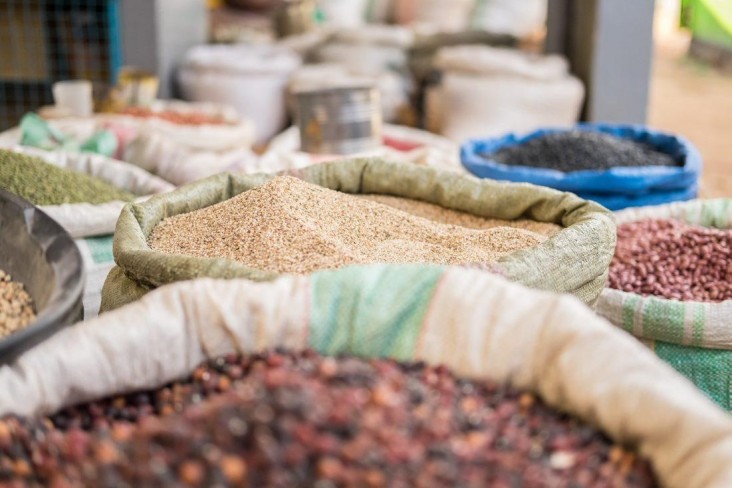Speeches Shim

The Case for Seed Trade Harmonization
The agriculture sector is of major social and economic importance for all 16 Southern African Development Community (SADC) nations, contributing between four (4) and 27 percent of the gross national product (GDP) and approximately 13 percent of overall export earnings. Further, about 70 percent of the region's population depends on agriculture for food, income, and employment. The success of this agrarian region is highly dependent on easy access to high-quality, improved seed. As Peter Lungu, Director of Zambia’s National Plant Protection Organization has stated, “Seed is a key input for improving agricultural productivity and ensuring food security, and access to quality seed facilitates food resource diversification and prevention of genetic erosion.”
In 2013, two-thirds of SADC countries signed the Memorandum of Understanding (MoU) to operationalize the SADC Technical Agreements on Harmonization of Seed Regulations with the intent of facilitating the movement of high-quality seed consignments across national borders. The SADC Harmonized Seed Regulatory System (HSRS) establishes commonly agreed-upon standards, rules, and procedures related to Seed Variety Release, Seed Certification and Quality Assurance, and Quarantine and Phytosanitary Measures for Seed. The concept of “harmonization” in this context emphasizes the need to integrate smaller national seed markets into larger regional markets, ease movement of seed across borders, increase availability and diversity of seed and expand farmers’ access to improved seed.
For the SADC HSRS to succeed, it is critical that the SADC Member States turn their signatures into action, first reviewing their existing seed trade laws and policies, then aligning them with the guidelines. In some instances, Member States may choose to go one step further and develop a national seed law that is fully aligned with the SADC HSRS, domesticating the regional guidelines as enacted law. As of October 2019, no Member State had fully domesticated all three components of the SADC HSRS.
Zambia Emerges as Regional Leader
In December 2018, the SADC Food, Agriculture and Natural Resources Directorate applauded Zambia for taking a regional leadership role to domesticate the SADC HSRS. SADC went on to encourage the other SADC Member States to learn from the forward-learning nation on how to elevate activities and more closely align with the regional guidance.
However, even for a motivated nation, Zambia’s journey to realize a fully domesticated national seed law proved a deliberate and determined process and took a total of seven years to complete. As one of the original signatories of the MoU in 2013, later that same year, Zambia re-aligned its National Seeds Act and Regulations to reflect the regional guidance. By 2018, Zambia had domesticated two out of three of the SADC HSRS components—the Seed Variety Release and Seed Certification and Quality Assurance, leaving only the Quarantine and Phytosanitary Measures for Seed.
In 2019, Zambia agreed to pressure-test the SADC HSRS with a partner seed company—Seed Co. Zambia Ltd. Through the Feed the Future Southern Africa Seed Trade Project, USAID invested $100K in support of a seed export pilot intended to move high-quality, hybrid maize seed, produced under the SADC HSRS, from Zambia to the Democratic Republic of Congo. With the support of other key partners, particularly the national seed authority, the Seed Control and Certification Institute, Seed Co. Zambia Ltd produced 226 MT of improved maize seed valued at $376K. Further, the export moved seamlessly across borders and sparked interest from many more seed producers vying to break into the SADC market.
Zambia Becomes the First
“We have been pushing for years now, and I am glad we have come to the tail end.” – Dr. Kenneth Msiska, Head of the Plant Quarantine and Phytosanitary Service (PQPS) of Zambia's National Plant Protection Organization
Concurrent to the Seed Co. pilot export, the Seed Trade Project worked closely with the Ministry of Agriculture’s (MoA) National Plant Protection Organization (NPPO) to develop three (3) Statutory Instruments (SIs). The SIs cover the last component of the SADC HSRS – Pest Risk Analysis, Surveillance, and Phytosanitary Procedures. To facilitate this final step, the Project funded workshops and provided technical assistance to the NPPO. As a result, on June 18, 2020, the Ministry of Justice approved the final version of the SIs, known as the Phytosanitary Certification Regulations 2020 (Surveillance, Pest Risk Analysis, Phytosanitary Procedure, and Phytosanitary Services Fees), and published in the Government Gazette, making Zambia the first SADC nation to fully domesticate the SADC HSRS on August 14.
“The SIs have now been merged as one Phytosanitary Certification, but with the standing components of each activity, which had initially been independent. The content is still the same—nothing has been compromised,” explained Dr. Kenneth Msiska, Head of the Plant Quarantine and Phytosanitary Service (PQPS) of Zambia's National Plant Protection Organization. “We have been pushing for years now, and I am glad we have come to the tail end.”
Zambia’s accession to the SADC Harmonized Seed Regulatory System is a major milestone for the SADC region and the Seed Trade Project. While already a leading seed exporter in the SADC region and Africa more broadly, the country’s full domestication of the SADC HSRS deepens its position. Zambia is quickly becoming a stabilizing force for food security and resiliency regionally, an attractive choice for seed companies, and a potential engine for economic growth.
###
About the Seed Trade Project
The Feed the Future Southern Africa Seed Trade Project is funded by the USAID Southern Africa Regional Mission and provides targeted technical assistance to facilitate the implementation of the SADC Harmonized Seed Regulatory System. The goal of the Project is to boost seed trade across the region, integrating smaller and more isolated national seed markets into one broader SADC market. Implemented by DAI Global, LLC, the Seed Trade Project is part of a regional policy effort to improve agricultural productivity, food security, and nutrition in the SADC region.

Comment
Make a general inquiry or suggest an improvement.